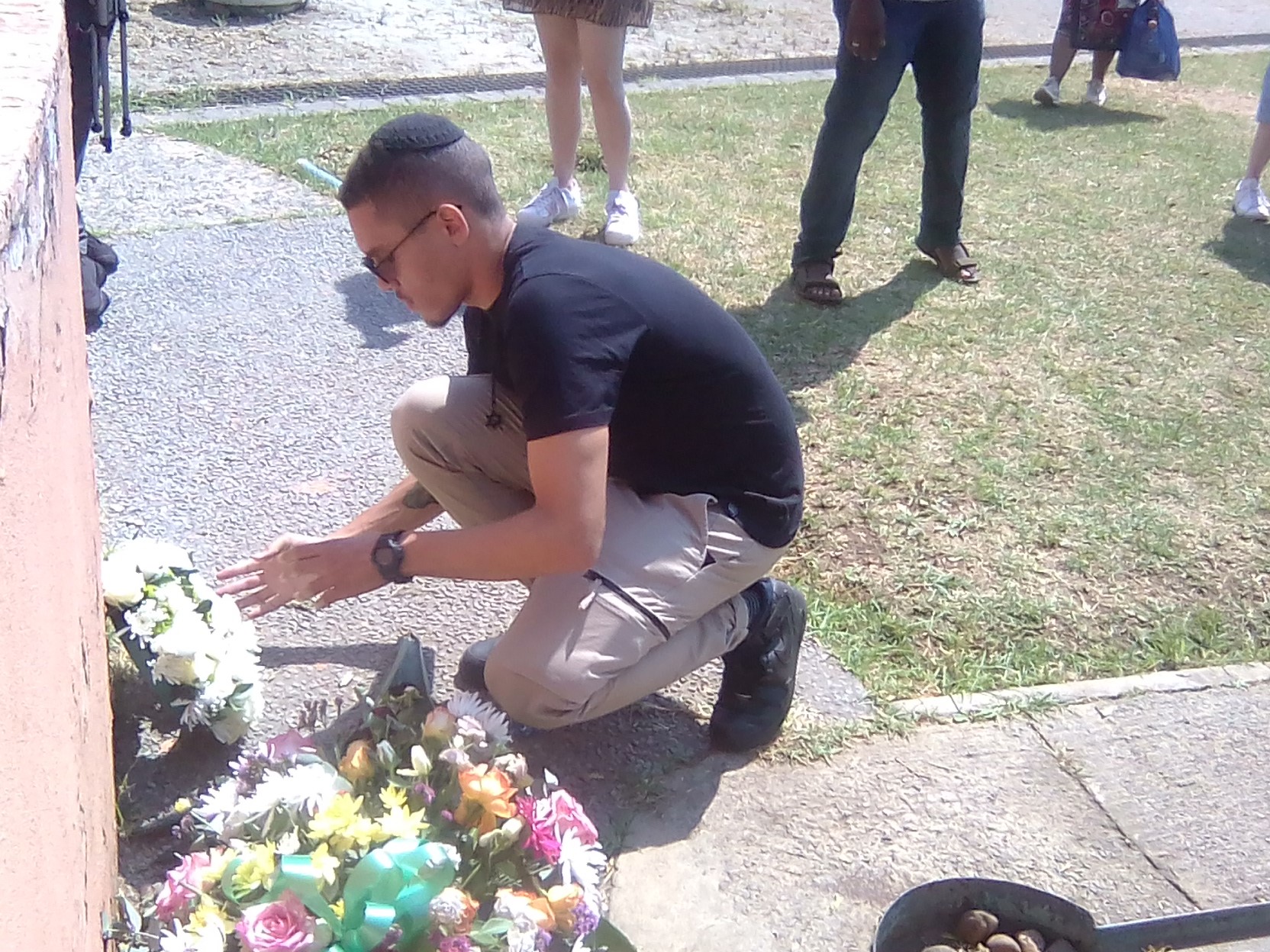click to dowload our latest edition
CLICK HERE TO SUBSCRIBE TO OUR NEWSLETTER


Published
1 year agoon
“When I was young, my parents told me, ‘Noah, you’re black – and you’re Jewish. It might not always be easy for you or fair, but you must be proud of who you are.’”
Wearing a kippah on his head and Magen David on a chain around his neck, United States-born Noah Shufutinsky is proud of his identity as a black Russian Jew. His mother is African American, and his father was a refugee from Soviet Russia.
Shufutinsky, a renowned rap artist who goes by the name of Westside Gravy, was in South Africa as part of a Stand With Us delegation to meet the local community. He was also here to collaborate with local rap artist, Tanaka Jura, in writing and recording a new song speaking against the evils of xenophobia, racism, and antisemitism.
During his visit, the two musicians performed together for the first time in a Rosebank nightclub. Shufutinsky uses the medium of rapping to tell his story and make necessary statements. He said rap music provides a platform for discussion of critical issues affecting society today – the topics no-one wants to talk about.
While in South Africa, he visited the Sharpeville memorial site on Human Rights Day on 21 March. The site commemorates the Sharpeville massacre on 21 March 1960. Shufutinsky was accompanied by the South African Jewish Board of Deputies, South African Union of Jewish Students, and the South African Zionist Federation.
“Though each story of racism, hatred, and division plays out differently, I can relate to some of the feelings that apartheid might have caused,” said Shufutinsky, who laid down a wreath at the memorial.
Shufutinsky told the SA Jewish Report he had experienced antisemitism and racism from an early age.
The first time he had to deal with antisemitism, he was at preschool. He said he told his classmates and teacher that he didn’t celebrate a certain holiday because he was Jewish. To this one of the children responded, “Then you’re not invited to my birthday party.” He said he now understands that this was coming from a child who was only about five years old.
In another instance, when he was on a university campus, a car slowed down next to him as he walked. Someone yelled something at him about him being Jewish from the car’s window. He responded by walking up to the car window and asking the people in the car what they had just said to him.
Shufutinsky said he had learned to be proud of his identity, and gave credence to his family and upbringing for the unapologetic and proud public display of his unique cultural heritage.
“It hasn’t been much of a struggle to [have a strong sense of] identity because of the household I grew up in. Mom and dad went through a lot of things someone like me might have to go through. My dad was a refugee from the Soviet Union who had to come to America when ostracised for being Jewish. Coming to the United States, he had to deal with being a refugee. My mom’s parents had to settle in California from Mississippi, which they left because of racism.
“I’ve learned when confronted by attitudes of antisemitism or racism to realise that many don’t come from a place of hate, but ignorance and misinformation. This is why communication is so important. Music can be used to break down these prejudices and misinformation through storytelling. As a people, we need to tell ‘the Jewish story’ to others.”
He said many people relate to his lyrics. “Those who can’t are given a window into my reality through my words.”
Shufutinsky wrote lyrics and poems from a young age, and they helped him to make sense of his experiences. “The nature of my dad’s work meant that we would move every three years,” he said. So he gathered stories and sounds, which have all become a part of his music.
He said he started communicating with Jura, who goes by the name of July56, from across the world through Zoom. Realising they had a message to share and much in common, the two rap artists decided to collaborate to create music which speaks about important societal issues.
Recording together in a studio for the first time was an incredible experience for both artists. “We hadn’t heard each other’s verses, but when we put them together, they just clicked,” said Shufutinsky.
Jura said his parents were from Zimbabwe so he could identify with the challenges of xenophobia and could relate to those at the receiving end of antisemitic gestures. He said of their collaboration, “We bring our unique stories and sounds together. I have African sounds and afro-beats. Noah brings the sounds and melodies of his culture into the mix, and raps in Hebrew.”
Jura said he had had a Jewish friend as a child who had a recording studio on his property. “It was from him that I learned about the Jewish culture,” he said. “As an example, it was a rule that there was no recording on a Saturday – this was Shabbat.”
Jura learned about his friend’s identity because he didn’t try to hide it. Likewise, Shufutinsky said, “I learned that the things that make me different aren’t to be hidden but to be proud of. My parents taught me that my grandparents didn’t risk everything for me to be ashamed of who I am.”
